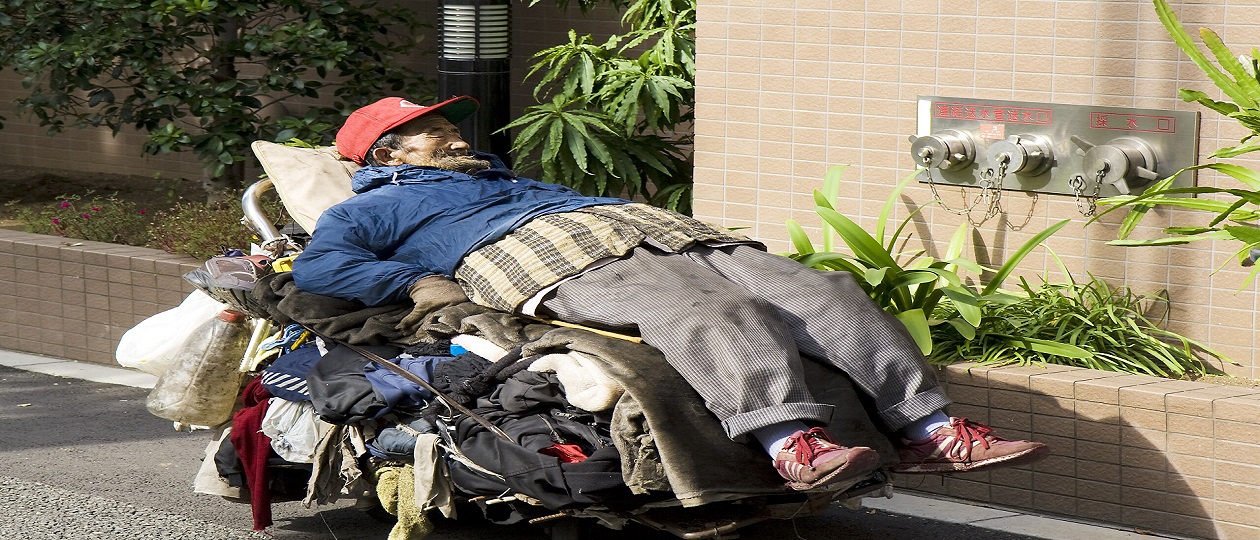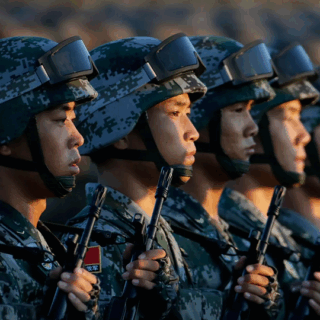
“We live in a city of brotherly love,
We are remembered as long as we disturb others…”
Nautilus Pompilius
“WELFER is a colloquial name for social benefits that are part of the system of assistance to the poorest categories of citizens.
Welfare programs cover individuals and families who, for one reason or another, do not earn enough money in the conditions of a market economy to maintain a certain standard of living. This standard is determined by welfare programs.”
“Come in, sit down,” Katsu Yoshimoto politely invites us into his house built from cardboard boxes, puffing on a cigarette. “They looked at me and asked: “What do you actually want?”” he says, recalling his visit to a government agency. “They didn’t help. They turned us around 180 degrees. You can only get help if you are over 65 or very ill.” — he added, coughing tuberculosis.
The social subsidy system in Japan obliges the poor to first apply for help from his family, and the able-bodied poor are not entitled to help at all, even if they already have a job.
On the one hand, this system worked wonderfully. Family traditions became even stronger, help is provided by the family, not the state, and the number of those who are on state subsidies has sharply decreased.
It should be noted here that only 1% of children are born to unmarried women. In Russia, this is a quarter of children.
Japan also has a much lower percentage of drug addicts and unemployment, a much more egalitarian distribution of wealth, a greater sense of meaning in family obligations, and a sense of shame that manifests itself in almost every aspect of life. Scientists say that this system in Japan almost never creates addiction, and they suggest that the Japanese approach emphasized the work ethic and the importance of family ties. Social workers rigorously screen applicants and regularly visit homes to make sure they don’t have illegal luxuries like cars or air conditioners, so fraud is extremely rare.
The welfare system has broad public support in Japan. In fact, people sometimes complain that the government is too harsh on the poor.
”This system is funded by taxpayers, so naturally we have to be strict,” says Tokuyuki Case, an official at the Ministry of Health and Welfare in Tokyo. ”Our standards are very strict.”
Yet if the lack of a broad national safety net focuses people’s minds on the need to walk a tightrope, it is also clear that when some people inevitably slip, there is often nothing to save them.
Last April, a 77-year-old woman and her “handicapped” son starved to death in their Tokyo apartment. Local authorities knew the family was struggling, although they had not formally applied for welfare benefits. After the bodies were found, authorities found a diary kept by the woman whose last entry was: ”Every day is a struggle. I want to die quickly.”
In another case, a 79-year-old widow was in danger of losing her welfare benefits if she did not get rid of her air conditioner. She did so and collapsed in her apartment during a heat wave and was taken to hospital, where she spent six weeks recovering.
“It’s a very cold society,” says Yoshifumi Ozeka, a homeless man who has forgotten his exact age but thought he was nearly 80. Mr Ozeka ran away from his wife and children a year and a half ago ”because they laughed at me,” and has lived ever since in a cardboard cocoon he built at Shinjuku Station, in central Tokyo.
Like most homeless people, he says he didn’t apply for Social Security because he would never get it.
Japan has two elements of a social welfare program: universal health care and day care.
Everyone has access to doctors and hospitals at affordable prices, free for the poor. And day care centers throughout Japan provide excellent care for children from six months to school age, if mothers work, for a modest fee that low-income families are exempt from.
But while the United States offers a network of social assistance programs, Japan has no food stamps and relies primarily on a single cash grant program. Anyone who is poor is eligible, but only if the person has no family or assets and is unable to work.
”We go to financial institutions and check savings accounts or other money,” said Kanji Tanaka, a welfare worker in Kawasaki, a city south of Tokyo, ”and we look for family registration to see if there are relatives, and then we contact them.”
Mr. Tanaka also visits the home of a grant applicant to make sure it is not too generous and will not be seen as a luxury.
An applicant who owns a home is usually advised to sell it and use the proceeds until the money runs out — and then reapply. In May, a 96-year-old man was taken off welfare because he was found to have $30,000 in savings. The worker told him to spend the money and then reapply for government assistance.
The caseworkers have a clientele of about 60 people and have time for regular, unscheduled visits to recipients’ homes. Workers have a high moral standing and give people direction on what to do.
Because healthy people are usually excluded on the grounds that they could find work if they wanted, the largest group of recipients is the elderly — many of them bedridden widows — 44 percent of households receiving assistance.
Another 41 percent are households with a sick or disabled member. About 9 percent are single mothers, but in Japan they are mostly divorced or widowed, not never married.
Akemi Watanabe, a social worker in Kawasaki, showed that two of the 60 recipients in her clientele were single mothers, both abandoned by their husbands. Both worked part-time, receiving an extra check to pay for social needs.
Most single mothers in Japan do not apply to the state for assistance because they have parents or other family members who can support them. Because of this, single mothers live with their parents, so that the child grows up under the supervision of several adults.
”Japanese tend to regard this as something extremely shameful, and so they hesitate,” said Toshio Ata, a senior welfare official in Kawasaki.
Mr. Heta led us to the local welfare office on the sixth floor of the Government Building. He pointed to a separate, hidden elevator that goes directly to the sixth floor, so that applicants will not be embarrassed when exiting a crowded elevator.
”This is what we have to do to avoid insults,” Mr. Heta said. ”All welfare offices in Kawasaki have a separate elevator so that visitors will not be embarrassed.”
Scientists say many people who qualify for welfare don’t apply because of that shame.
”I might have used it, but I’m too proud,” said Shiro Kitajima, 48, a homeless man with severe back problems who was encouraged by officials to apply for $800 a month in welfare. ”I got free treatment for five months, and that was enough.”
In interviews with the homeless — who only very rarely qualify for welfare — what was striking was how undemanding they were. Even those who said they should get help were quick to add that their neighbors didn’t deserve it.
”These people here, rummaging through trash, are just lazy,” said a homeless man who was a sex worker and didn’t want to give his name (“Call me Turkey.”) and didn’t think he should get welfare. — ”They don’t deserve help.”
Good or bad, this system works in a traditional society like ours. It’s better than no help at all. Or is it?





